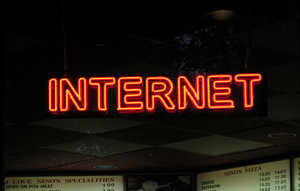Your CISPA Primer
The U.S. House of Representatives will vote Friday on the Cyber Intelligence Sharing and Protection Act. What is it, and what does it mean for freedom and security on the Web? RT has assembled a quick guide to answer those questions.
The U.S. House of Representatives will vote Friday on the Cyber Intelligence Sharing and Protection Act. What is it, and what does it mean for freedom and security on the Web? RT has assembled a quick guide to answer those questions. –ARK
Your support matters…RT:
The act says it is meant to create procedures allowing “elements of the intelligence community to share cyber threat intelligence with private-sector entities and to encourage the sharing of such intelligence.” It also states that a cyber-security provider or a self-protected entity may share “cyber threat information” “with any other entity designated by such protected entity, including… the Federal Government.”
But what does that mean?
Unnecessarily broad definitions are the factor which makes CISPA so controversial with web users.
Experts argue that the bill would give the government the ability to circumvent internet privacy laws and obtain information on user activities from private companies – be it providers, hosting companies or social networks – essentially any company involved in the Internet.
Independent journalism is under threat and overshadowed by heavily funded mainstream media.
You can help level the playing field. Become a member.
Your tax-deductible contribution keeps us digging beneath the headlines to give you thought-provoking, investigative reporting and analysis that unearths what's really happening- without compromise.
Give today to support our courageous, independent journalists.





You need to be a supporter to comment.
There are currently no responses to this article.
Be the first to respond.